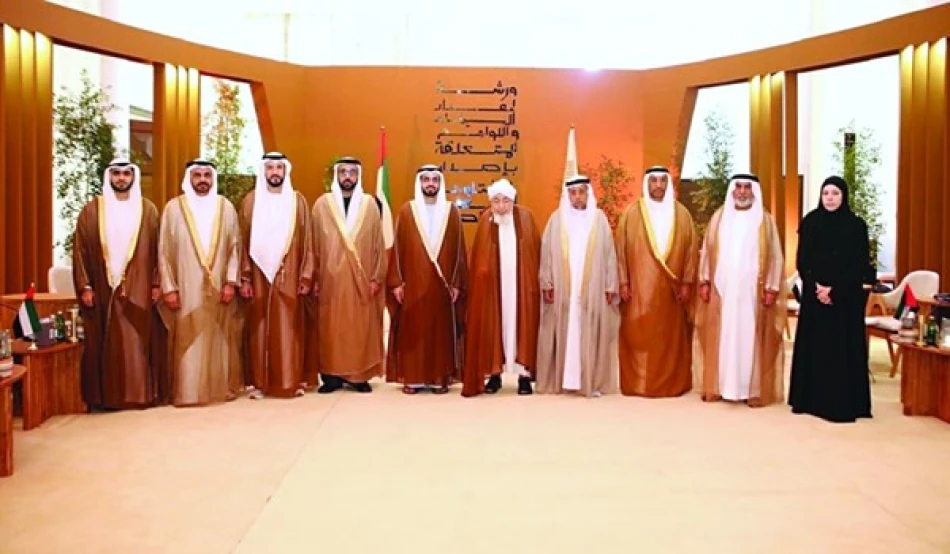
UAE Fatwa Council Hosts Workshop on Regulatory Evidence for Fatwas
UAE Centralizes Religious Authority with New Federal Fatwa Council Regulations
The UAE Emirates Council for Sharia Fatwa is developing comprehensive policies to regulate religious rulings across the nation, marking a significant shift toward centralized Islamic jurisprudence. Under Federal Law No. 3 of 2024, the council now holds exclusive authority over public religious edicts and oversight of private fatwas, reflecting the UAE's broader strategy to modernize Islamic governance while maintaining religious authenticity.
Institutional Framework Takes Shape
During a recent workshop titled "Preparing Policies and Regulations for Issuing Public and Private Fatwas," council members led by Sheikh Abdullah bin Bayyah outlined regulatory frameworks that will standardize fatwa procedures nationwide. The initiative aims to establish unified criteria for religious rulings while creating reference frameworks for Islamic scholars to ensure content quality and professional competency.
The workshop addressed key policy areas mandated by federal law, focusing on institutional fatwa processes that balance traditional Islamic teachings with contemporary requirements. This approach reflects the UAE leadership's continued support for tolerance, coexistence, and national identity strengthening.
Modernizing Religious Authority
Digital Age Challenges
Sheikh Abdullah bin Bayyah emphasized the importance of enhancing qualification and training programs while preparing for challenges related to artificial intelligence and social media platforms. The council recognizes the need to balance rapid fatwa issuance with precision and accuracy in addressing emerging issues—a particularly relevant concern as digital platforms increasingly influence religious discourse.
Strategic Vision
The council's strategic plan aims to build a "civilizational model for Sharia fatwa governance" that combines religious heritage with modern requirements. This represents a sophisticated approach to Islamic jurisprudence that acknowledges both traditional scholarship and contemporary societal needs.
Regional Context and Implications
The UAE's move to centralize religious authority follows similar trends across the Gulf region, where governments seek greater oversight of religious messaging. Unlike more restrictive approaches seen elsewhere, the UAE model appears designed to maintain scholarly rigor while ensuring consistency with national values of tolerance and moderation.
This development positions the UAE as a potential regional leader in modernized Islamic governance, particularly as other nations grapple with balancing religious authority and state oversight. The emphasis on professional standards and institutional frameworks could serve as a template for similar initiatives across the Muslim world.
Looking Forward
The implementation of Federal Law No. 3 represents more than administrative reorganization—it signals the UAE's commitment to creating a regulated, professional approach to Islamic jurisprudence. By establishing clear institutional boundaries and professional standards, the council aims to enhance the credibility and consistency of religious guidance while adapting to digital-age realities.
The success of this initiative will likely influence how other nations approach the intersection of traditional Islamic scholarship and modern governance structures, potentially reshaping religious authority frameworks across the region.
Most Viewed News

 Layla Al Mansoori
Layla Al Mansoori






